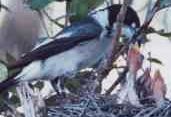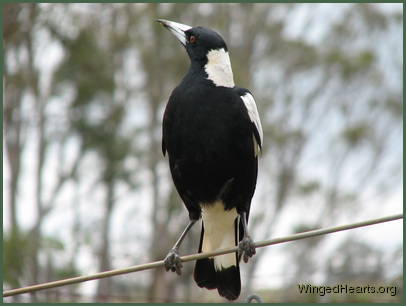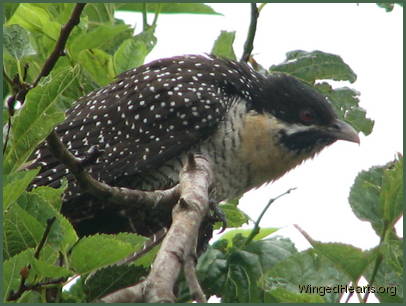Navigation
- HOME
- Wild Bird Rescues
- Communicating With Wild Birds
- Recognising Birds
- No Life For Caged Birds
- Birds I View
- Feathery Tales
- Flying Foxes and Bats
- Grounded!
- Not Just A Bird...
- The Sticky Beak
- Winged Tips
- Your Winged Friends
- Books & Resources
- Wild Bird Talking Ezine
- About the authors
- Contact Us
- News and Media
- Links
- Forums
Blog chat login
Carbon Is Life Book
The story of carbon dioxide, the essential life-giving gas that feeds all life. Contrary to everything we have been told, our planet is currently suffering a carbon famine, with deadly consequences for the poor and for wildlife.
This is the book every environmentalist and lover of wildlife really needs to read! (Click on the image to find out more.)


 Yesterday Gitie and I went to see how Vicky and Bertie are doing this year on the nesting front. Although Vicky's nest is in line with our breakfast room, it is distant and we have not been able to set up the telescope this year. So imagine our delight when we found Vicky sitting proudly on the nest. The nest is in a tricky spot, so Gitie stayed by the road while I went through the paddock to the nesting tree. This is the tree that Vicky and Maggie purchased from a crow some years ago, giving the crow their old tree and nest in return, as well as rights to get food from their human friends (us) for a year). The crow made Vicky's old nest bigger and stronger, while Vicky lined the crow's nest with lots of soft material.
Yesterday Gitie and I went to see how Vicky and Bertie are doing this year on the nesting front. Although Vicky's nest is in line with our breakfast room, it is distant and we have not been able to set up the telescope this year. So imagine our delight when we found Vicky sitting proudly on the nest. The nest is in a tricky spot, so Gitie stayed by the road while I went through the paddock to the nesting tree. This is the tree that Vicky and Maggie purchased from a crow some years ago, giving the crow their old tree and nest in return, as well as rights to get food from their human friends (us) for a year). The crow made Vicky's old nest bigger and stronger, while Vicky lined the crow's nest with lots of soft material. The first time a bird sees a camera, he/she may feel a bit unsure of the big thing we place next to our eyes that also makes a clicking sound. But in no time at all, they realise that the sound poses no danger to them. Once they become comfortable with the sound, they feel quite amused by our fondness for pointing this object towards them.
The first time a bird sees a camera, he/she may feel a bit unsure of the big thing we place next to our eyes that also makes a clicking sound. But in no time at all, they realise that the sound poses no danger to them. Once they become comfortable with the sound, they feel quite amused by our fondness for pointing this object towards them. Wild Birds love communicating with each other, with birds from other species, with other animals and they absolutely love talking to humans. They may fly off in a flurry at the very start because they may not be sure of your intentions, or they may befeeling particularly shy or self-conscious. But once they realise that you are sincerely interested in them, they begin to respond and take an interest in you.
Wild Birds love communicating with each other, with birds from other species, with other animals and they absolutely love talking to humans. They may fly off in a flurry at the very start because they may not be sure of your intentions, or they may befeeling particularly shy or self-conscious. But once they realise that you are sincerely interested in them, they begin to respond and take an interest in you.



